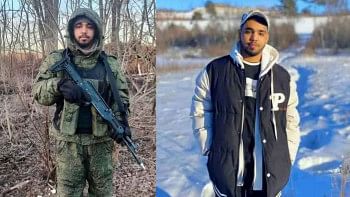What courts observed
The Supreme Court (SC) on November 19 last year pronounced the verdict upholding the death sentence of 12 convicts in Bangabandhu Sheikh Mujibur Rahman assassination case.
Three High Court (HC) judges had earlier delivered separate verdicts in the case.
On December 14, 2000, Senior Judge of an HC bench Justice Md Ruhul Amin upheld the death sentence of 10 convicts, and Junior Judge Justice ABM Khairul Haque upheld the sentence for all the 15 convicts.
Third judge Justice Mohammad Fazlul Karim on April 30, 2001 delivered the final verdict upholding death sentence of 12 convicts.
Earlier on November 8, 1998, District and Sessions Judge of Dhaka Kazi Golam Rasul delivered the judgement convicting and sentencing 15 ex-army officers for killing Bangabandhu Sheikh Mujibur Rahman and most of his family members.
The judge ordered that the 15 found guilty be executed in an open firing squad. If that was not possible for some reason, he ordered execution by hanging.
The three courts delivered the verdicts with some landmark observations.
THE SUPREME COURT
The killing of then president of the country Bangabandhu Sheikh Mujibur Rahman and most of his family members was a great crime against humanity, mankind and civilisation.
A murderer is always a murderer and a terrorist is always a terrorist and is enemy to mankind and humanity and an offender in the eye of the law. To protect and shelter such killers is a great crime, a great sin and sin spares none.
The accused brutally killed such a leader who is none but the father of the nation. "They even did not spare the child son of the president who was below 10 years old. They killed him in such a brutal manner the nation was shocked and dumbfounded," the SC observed.
There was no explanation why they killed the three women. "They committed the crime against humanity by killing a child and three innocent women who were unarmed. They eliminated almost the entire family who were found in the house.
"Murder of innocent unarmed men and women and children is the greatest sin in Islam and also in all other religions and a great crime against civilisation and mankind."
THE HIGH COURT
Justice ABM Khairul Haque observed the intention of the accused was not only to kill president Sheikh Mujibur Rahman along with his entire family but also to overthrow the government successfully and maintain the success by capturing the state power.
Eleven innocent people including three women and a little boy were brutally and diabolically murdered in the incident of August 15, 1975.
"Sheikh Mujibur Rahman, the then president of Bangladesh, became a target of a vicious intrigue and was murdered by a handful of disgruntled army officers."
The manner, in which they were so brutally and mercilessly murdered, repels any consideration of reduction of death sentence.
As such the accused deserve no leniency in the matter of sentence. The manner of execution of sentence by firing squad is found to be difficult on the part of the authorities and the accused may be hanged to death.
The purpose of deployment of tanks was to show the strength of the conspirators and also to terrorise the people. Both the objects were successfully achieved. They even terrorised the 46 Brigade not to speak of the common people.
The charges against the accused were conspiracy and killing president Bangabandhu Sheikh Mujibur Rahman, most of his family members and relatives and have got no relevance to the concept of a mutiny.
"Since persons in authority of the Army, Navy, Air Force, Police, BDR and Rakkhibahini readily owned their allegiance to the new government and no chain of command was disturbed, there was no mutinous situation as contemplated in the laws."
LOWER COURT
The incident of August 15, 1975 was not only brutal but also marked ruthless shooting of two newly married women and a ten-year old child.
The crime is such an act that is not only harmful to individuals but also to the society and the state.
Despite being aware of the serious implications of these brutal killings, well-planned conspiracy was hatched. Therefore, there is no reason for showing any sympathy and mercy for them. They are not fit to receive any such mercy.
The country's politicians changed their colours in every changed situation in absence of their leaders.
"The politics here is leader based. If the leader is there, everything is there and I am there…. If the leader is not there, nothing is there and I am no more there."
Although there is no specific evidence about the involvement of Taheruddin Thakur in the conspiracy of the killing, his activities after the incident was mysterious.
"When the bullet-ridden body of Bangabandhu was lying in Dhanmondi, Thakur was busy preparing speeches and statements at the radio station."
There might be more people involved in the killings.
"There was no bar to holding trial of the military offenders in a civil court on charges of killing Bangabandhu."

 For all latest news, follow The Daily Star's Google News channel.
For all latest news, follow The Daily Star's Google News channel. 



Comments